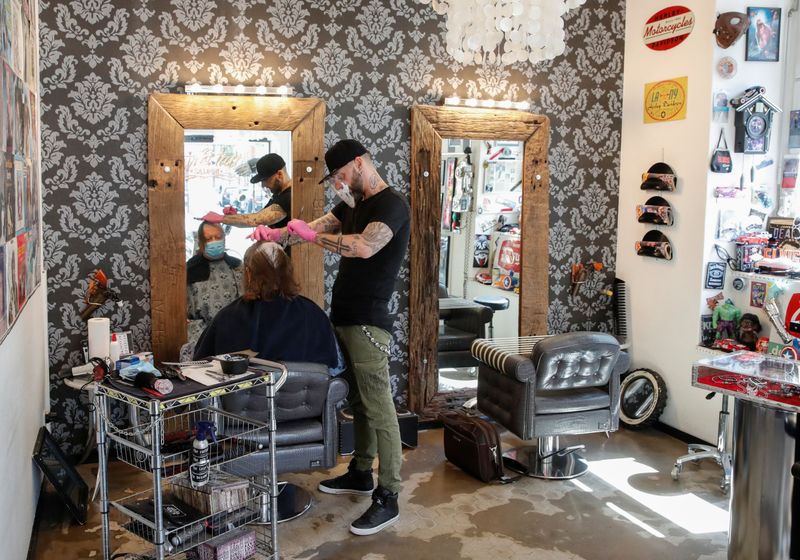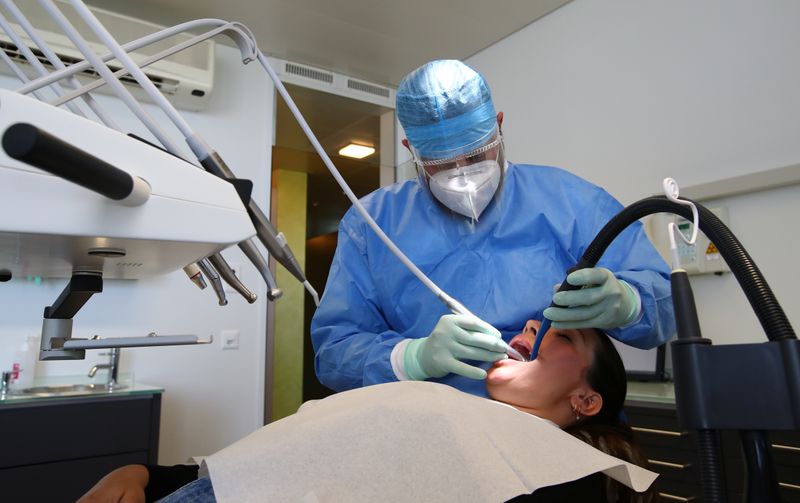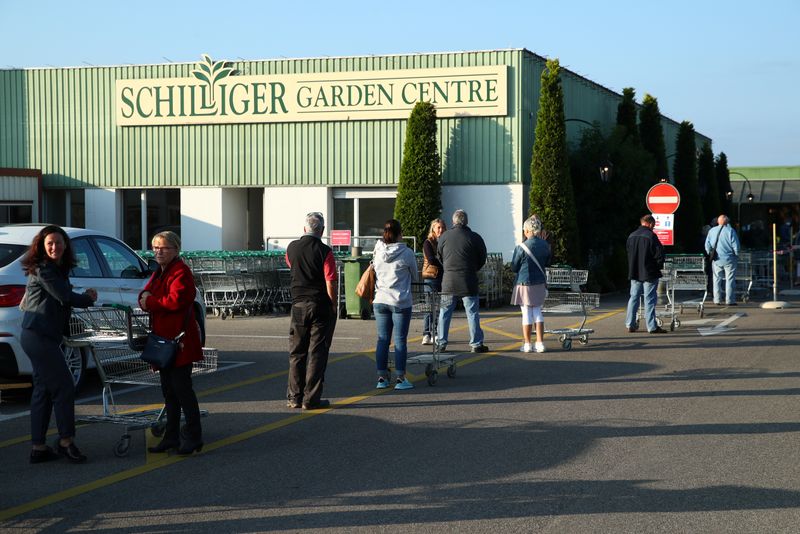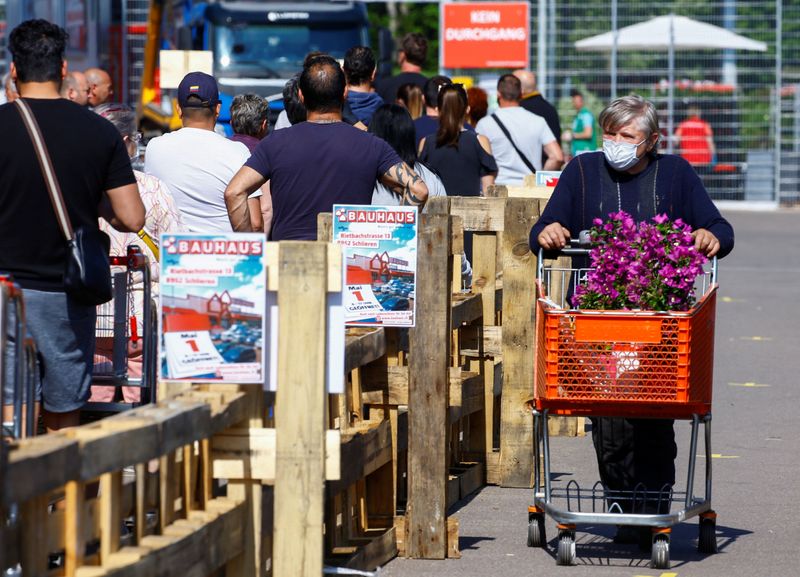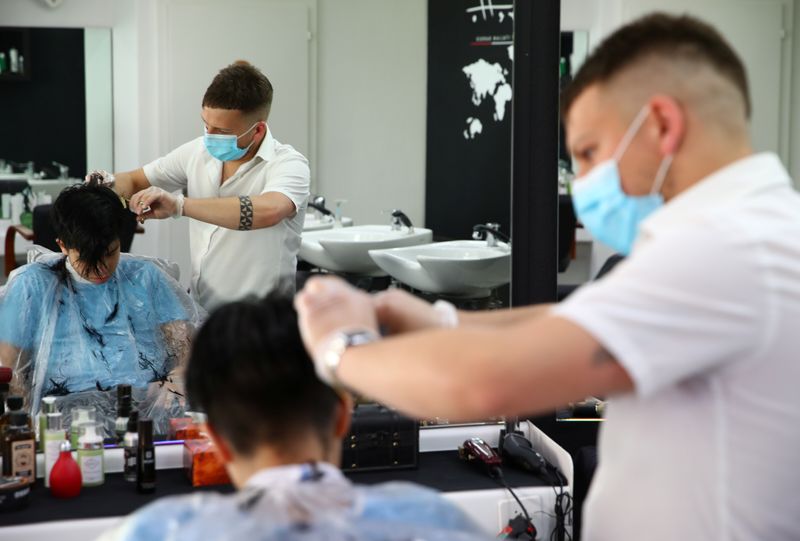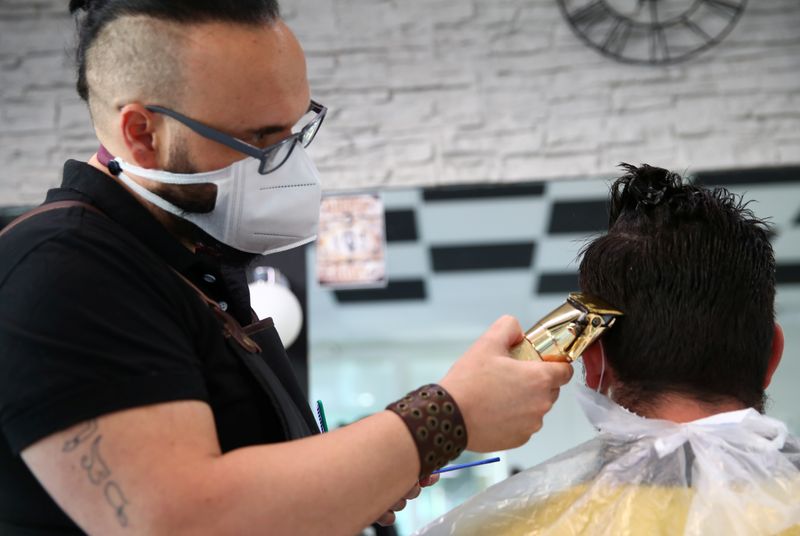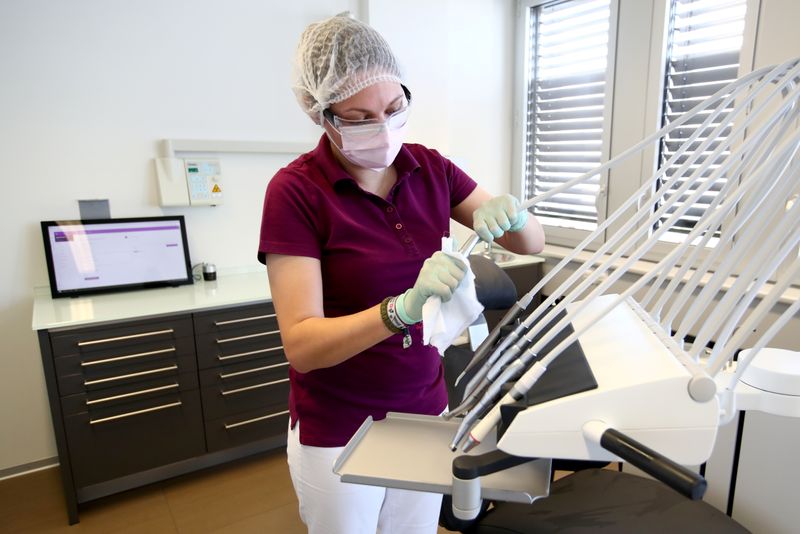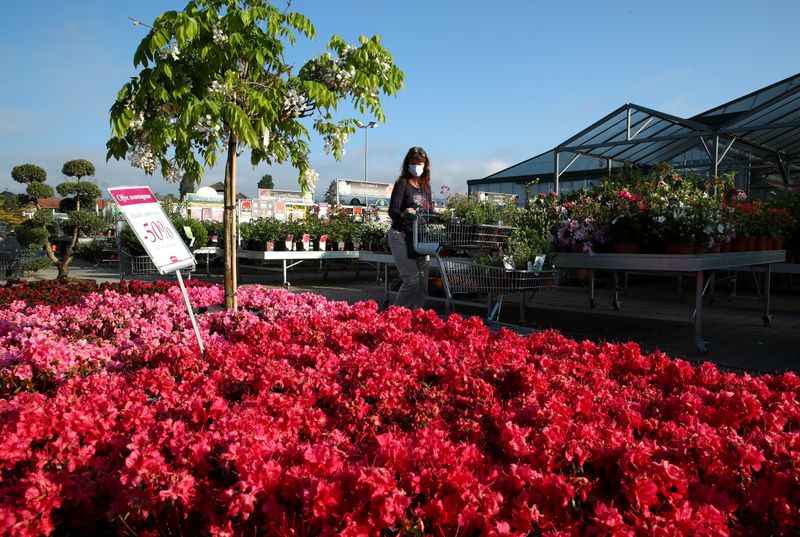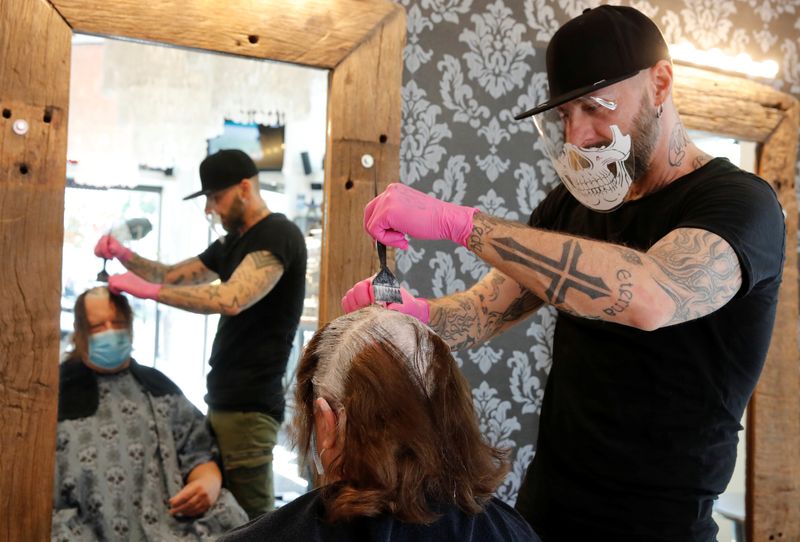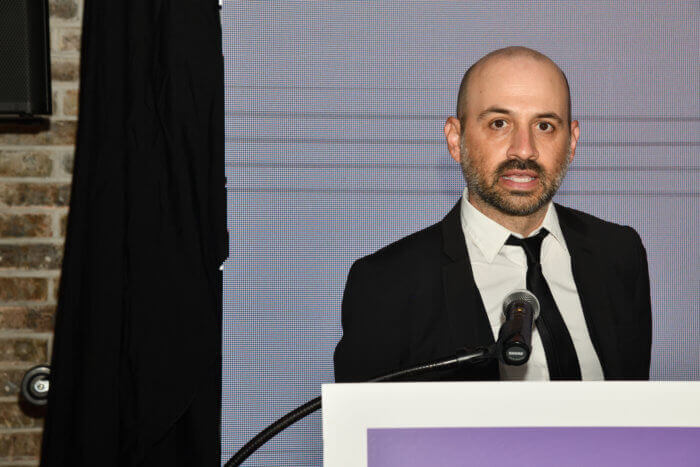GLAND/LAUSANNE, Switzerland (Reuters) – Haircuts, massages and shopping for garden supplies topped the agenda for Swiss on Monday as the country slowly started easing restrictions on public life imposed in March to slow the spread of the novel coronavirus.
Queues formed in front of garden centres as people battling cabin fever emerged from six weeks of staying at home at the government’s urging.
“I think it is about time. We have to live our lives, so I think it is important that we keep doing our activities and contact with people is so important, even in a queue like that,” shopper Christiane Ansermet said as she waited to enter the Schillinger garden centre in the town of Gland on Lake Geneva.
Anne Schilliger, owner of the garden centre, said her business had been shut since March 17, forced to throw away a quarter of its annual production and losing 15% of turnover.
“So this is a lot for us and it is going to be difficult to get through this,” she said, striking a downbeat tone echoed by other small business owners.
More than 1,350 people in Switzerland have died of the COVID-19 respiratory illness the coronavirus causes. The number of people with positive tests is nearing 30,000 https://www.bag.admin.ch/bag/en/home/krankheiten/ausbrueche-epidemien-pandemien/aktuelle-ausbrueche-epidemien/novel-cov/situation-schweiz-und-international.html.
Only grocery stores, chemists and other “essential” businesses have been allowed to open during the lockdown.
“A COMPLICATED YEAR”
Hospitals could again perform elective surgeries on Monday, while dental surgeries, hairdressers, massage parlours and beauty salons also reopened.
Most shops, schools and food markets will follow suit from May 11. In a third stage, vocational schools and universities are set to reopen from June 8, provided there is no significant increase in COVID-19 cases.
“The number of new cases is continuing to decline, which is certainly good news on the first day we are starting to relax the measures,” Daniel Koch, the official leading Switzerland’s response to the coronavirus outbreak, told reporters in Bern.
Leornard Brazzola, a dentist in Lausanne, said patients have to pay out of pocket for many treatments so were likely to postpone or cancel some non-essential dental work.
“We expect that everybody will be impacted by this crisis and that we will suffer the consequences for several months,” he said. “This is going to be a complicated year.”
His practice allows just one patient into the office at a time. It removed magazines from the waiting room and spaced chairs two metres apart.
Finance Minister Ueli Maurer said last week that the shutdown was costing 5 billion Swiss francs ($5.14 billion) per week in lost output.
Facing the sharpest economic slump in nearly half a century, the government has launched its biggest economic aid package ever, providing 62 billion francs for businesses.
(Additional reporting by John Revill, Writing by Michael Shields; Editing by Gareth Jones)

